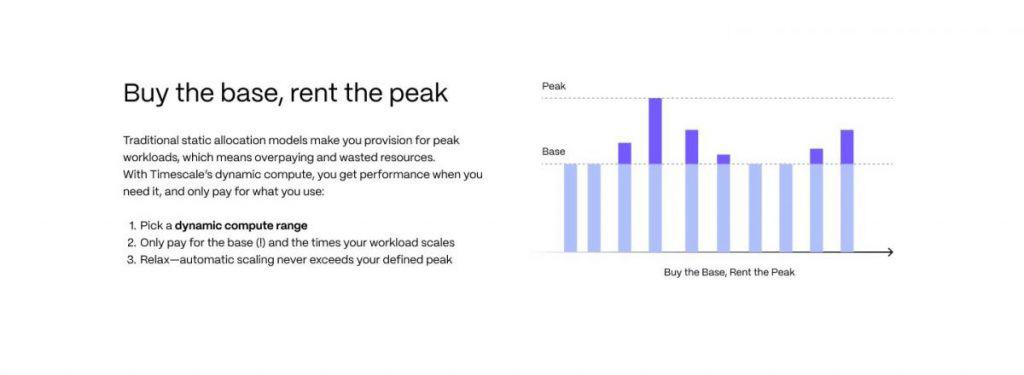Timescale Unveils Dynamic PostgreSQL to Optimize Relational Data Management
In Brief
Timescale has introduced Dynamic PostgreSQL for enhancing the efficiency of database compute and storage in business applications.

Cloud database company Timescale announced the launch of Dynamic PostgreSQL , a solution tailored for optimizing database compute and storage resources in analytics business applications. The company highlights that this product offers a fresh perspective on managed database services, allowing users to optimize their costs, provisioning, and overall performance while maintaining operational effectiveness.
Timescale noted that the launch of Dynamic PostgreSQL represents a significant shift from the prevailing industry trend, which seeks out specialized databases for unique workload requirements. The firm asserts that their approach distinguishes itself by building on PostgreSQL, a database system widely accepted in the community.
The new product is specifically crafted to handle relational workloads. Unlike traditional managed database services bogged down by fixed resource allocations, Dynamic PostgreSQL allows businesses to pay solely for the compute and storage resources they actually utilize. This is a more flexible model compared to the standard practice of paying for resources reserved during peak times, giving users the ability to define a custom range for their CPU usage.
"Dynamic PostgreSQL is designed to offer users the optimal balance of performance and budget management. Our solution features dynamic compute and usage-based storage, which empowers customers to establish a minimum and maximum CPU range, while we autonomously scale these resources up or down according to their real-time demands. At month-end, users are billed for the base compute (the minimum of the defined range) plus any additional compute used,\" stated Mike Freedman, CTO and co-founder of Timescale, in an interview with Metaverse Post. \"Customers will only pay for the actual data they store, rather than for unused disk space.\"
This announcement comes on the heels of Timescale's recent update of usage-based storage in their cloud product tailored for time-series data. The firm claims this feature eliminates the need for clients to predict their storage needs, ensuring they are billed solely for the storage they actually utilize, which results in an average savings of 35% for existing clients in their first month.
Enhanced Computational Features for Data Structures
Timescale explained that Dynamic PostgreSQL for relational workloads incorporates a usage-based storage approach coupled with agile compute capabilities. This enables clients to designate a range for CPU utilization while only paying for what they actually consume, ensuring predictable costs without sacrificing performance.
"Serverless databases often operate on heavily oversubscribed infrastructures and are typically optimized for rapid scaling to zero. This can result in subpar 'cold boot' query performances, as data is retrieved from slower remote storage, not to mention 'noisy neighbor' issues as databases vie for resources within a shared environment with limited isolation,\" Freedman elaborated. \"Our dynamic compute offers rapid scalability, ensuring users won’t face excessive costs for scaling or significant performance lapses due to architectures that cater to sporadic workloads. Instead, they only pay for the compute they utilize, while benefiting from a consistently strong performance baseline.\"

Freedman emphasized that the new solution can adjust dynamically to accommodate more compute resources as required, with the architecture of Dynamic PostgreSQL allocating kernel cycles via low-level OS interfaces across its cloud-native infrastructure.
"This approach is markedly different from serverless solutions that autoscale or shift instances behind the scenes, which may promise vast flexibility but often don't deliver on that promise,\" Freedman explained to Metaverse Post. \"Dynamic PostgreSQL has been meticulously engineered to sidestep these pitfalls. We chose to base TimescaleDB on PostgreSQL because it remains one of the most reliable platforms for constructing robust applications, and we continue to stand by that choice.\"
The company has announced that the Timescale Dynamic PostgreSQL product is now available, and interested users are encouraged to arrange a demonstration via this link .
Disclaimer
In line with the Trust Project guidelines , but please remember that the information provided here does not serve as legal, financial, investment, or other types of advice. Always invest only what you can afford to lose and seek independent financial counsel if uncertain. For more details, we recommend reviewing the terms and conditions along with the help and support resources offered by the issuer or advertiser. MetaversePost is dedicated to providing precise and impartial reporting, but market conditions may change without prior notice.







